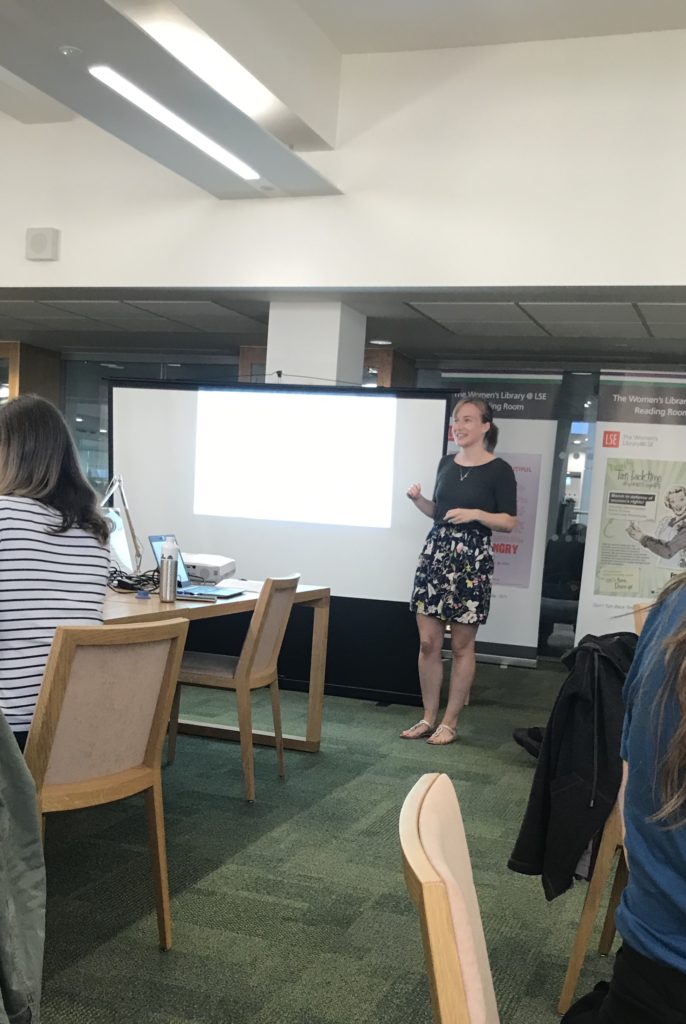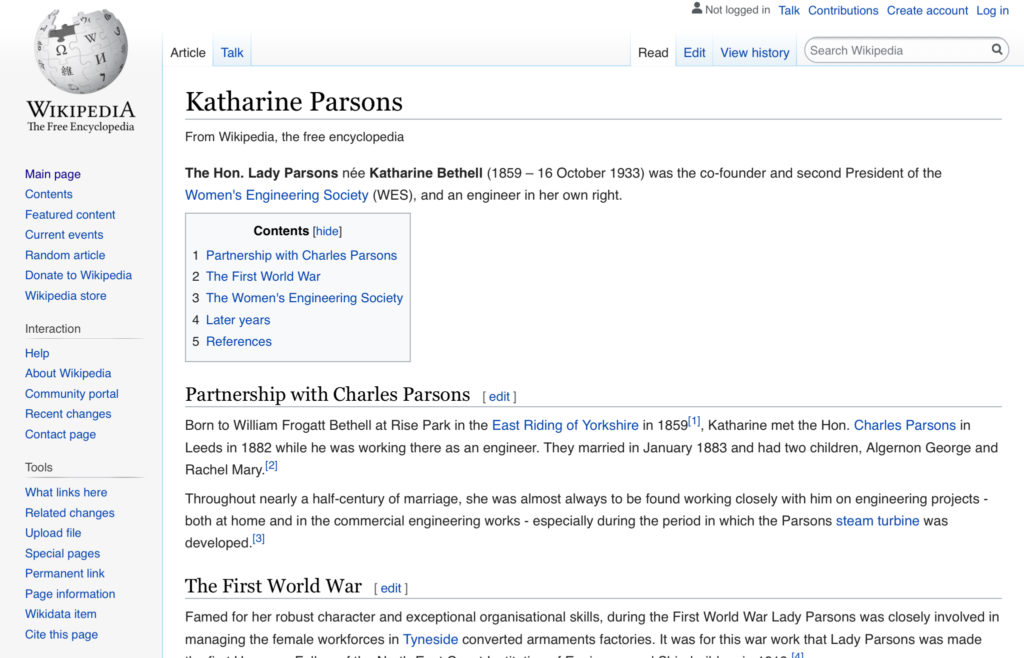by Emily Rees
Wikipedia is a global resource used by billions of users, but of the English language pages only 16.8% of the biography pages are about women. For example, until last month Katharine Parsons – who co-founded and served as president for the Women’s Engineering Society (WES), advocated for women’s rights and their role in engineering, and helped manage the engineering firm set up by her husband, engineer Charles Parsons – did not have her own Wikipedia page, only a stub on her daughter’s, Rachel Parsons.
Like many other women of note in history, Katharine Parsons had not found her way onto the online encyclopaedia, which relies on volunteers to create and edit pages. Wikipedia are aware of this problem and have set up the initiative Women in Red, which aims to level out this imbalance by running edit-a-thons or Wikithons, as they are also known. These are run by experienced Wikimedians (experts in editing and using Wikipedia) who teach volunteers how to create and edit pages for notable women.
On the 21 September 2019, the WES centenary project, Electrifying Women and Heritage Open Days came together to run such an event – the Electrifying Women Wikithon at the LSE Women’s Library in London. This was a follow-on from an earlier Wikithon run by WES at the library in March.
On what turned out to be a beautiful, late September Saturday, nearly 20 members of the public volunteered their time to come along to the event to learn how to edit Wikipedia and ‘make the internet less sexist’ (as the badges received at the end put it). The session was led by Wellcome Trust Wikimedian Dr Alice White, whose expertise and enthusiasm fuelled the day.

It was surprising how easy the process of editing is, operating much like basic word processing software that we are all mostly familiar using. More challenging is finding adequate references to support any claims being made on the page, for which extra research can sometimes be required. Sources held by the LSE Women’s Library proved useful for this. Citations are the cornerstone of Wikipedia; the more citations, the more reliable the information on the pages becomes. A Wikipedia page is only as good as its editors and their sources.
The participants in the Wikithon were provided with a list of women that they might want to edit or create a page for. Participants were attracted to a range of different women, depending on their own interests, which was fascinating to hear about. Some participants came from a science or engineering background and wanted to add more about the women working in their particular field, some just wanted to learn more about Wikipedia and others came wanting to work on particular women, whose careers they had taken a keen interest in.
The output from the four-hour session was remarkable: 11 articles were created; 38 articles edited; 9.73 thousand words and 107 new references added. Other than Katharine Parsons, new pages were added for food manufacturer and businesswoman Ella Hudson Gasking, German refugee and engineer Ira Rischowski, and India’s first female engineer Ayyalasomayajula Lalitha, among others.

In fact, Ira Rischowski’s new Wikipedia page was built upon research that Electrifying Women had compiled for our blog post about her story, which relied on material held in the Women’s Library. Her personal papers, 1938-1988, are held as part of the Records of the Women’s Engineering Society collection, on which more information here.
The creation of new pages, and the editing of existing ones, not only means that these women are now visible on one of the most accessible and searched online knowledge resources on the internet, but also that they can be linked to the WES centenary trail map. All these women now have a pin on the map, which shows the global spread of WES members; from the Wikithon there are new pins in India and Germany.
Feedback for the event was hugely positive, demonstrating a thirst for more events, with particular comment on Alice’s one to one teaching and her expertise. Both Electrifying Women and the WES centenary project plan more Wikithons relating to women in engineering, so keep an eye out for information on these.
There are still many women who do not have pages, or whose pages need attention, so the efforts must continue, but this event was testament to how much a group of enthusiastic volunteers can get done in only a few hours to demystify the role that women have played, not only in engineering, but in history.